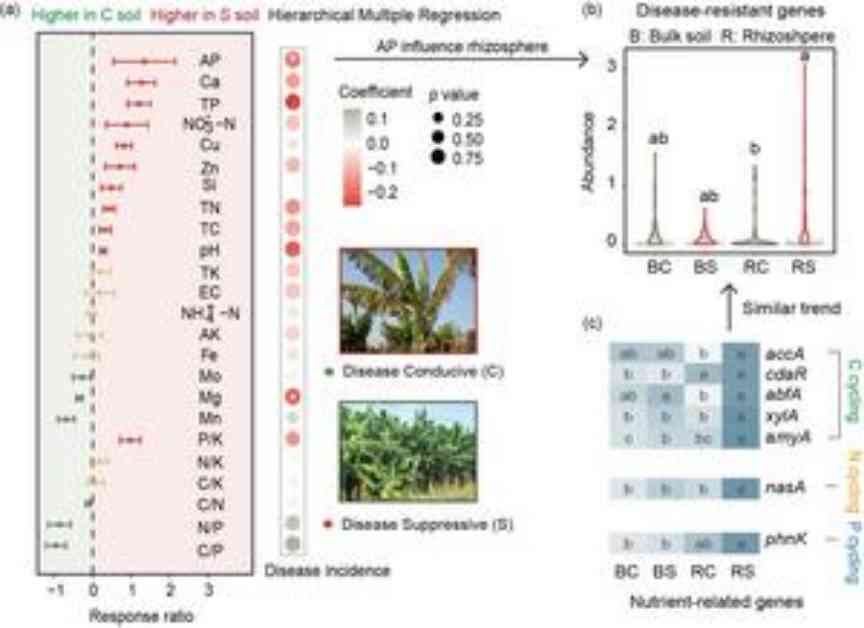Fusarium wilt, also known as banana Panama disease, is a major concern for the global agriculture industry, especially the banana sector. To tackle this issue, researchers have been focusing on enhancing soil resistance as a natural and eco-friendly approach to managing the disease without heavy chemical usage. A recent study published in Soil Ecology Letters has shed light on the crucial link between soil nutrient levels and disease suppression.
The study revealed that an increase in soil phosphorus levels, followed by nitrogen and carbon, plays a significant role in suppressing Fusarium wilt. By comparing pairs of orchards – one susceptible to the disease and the other suppressive – researchers were able to identify the key factors influencing soil disease suppressiveness. Through advanced sequencing techniques, they found a notable increase in disease-suppressing functions within the soil microbiome, particularly in the rhizosphere of suppressive sites. This enhancement was closely linked to specific nutrient-related functions, highlighting the symbiotic relationship between maintaining soil nutrient levels and keeping pathogens at bay.
Microorganisms such as Blastocatella and Bacillus were identified as crucial players influenced by soil nutrients, as they produce antimicrobial compounds that protect plants from pathogenic infections. Dr. Shen emphasized the significance of the study, especially in Hainan Island, which is vital to China’s banana industry. The contrasting traits observed in paired orchards provided a natural setting for the research, showcasing the importance of soil nutrient management and microbiome manipulation in disease control.
This research emphasizes the importance of balanced soil nutrition and promoting a diverse, beneficial soil microbiome to combat soil-borne diseases effectively. By focusing on maintaining soil health and reducing reliance on chemical pesticides, farmers can adopt more sustainable and environmentally friendly agricultural practices. This shift towards natural disease management strategies not only benefits crop health but also contributes to a greener and more sustainable farming approach.
